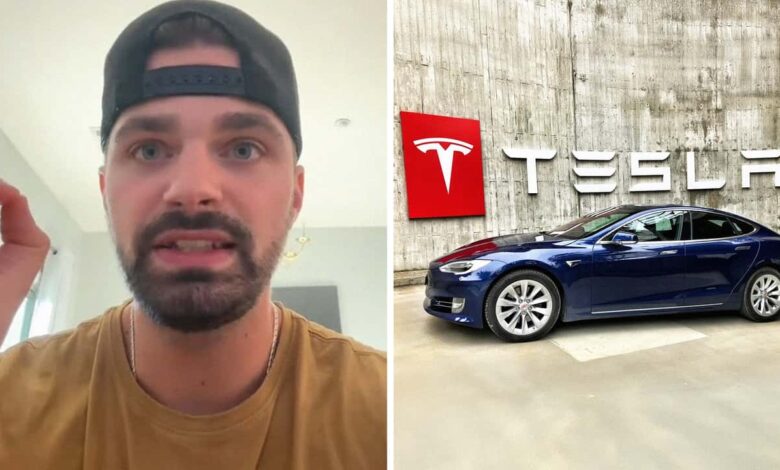What Is Tesla’s Buying Process Like?


For generations of car buyers, stepping into a dealership has meant steeling yourself for hours of negotiation, paperwork, and pressure. But for one new Tesla owner, the entire process—from test drive to trade-in—took less than 30 minutes and left him overflowing with enthusiasm.
“I bought a freaking Tesla!” creator Dylan Tettemer (@dylantettemer) exclaims at the start of the clip.
He explains how he test-drove a Tesla at a local showroom, then completed the entire purchase from his phone. “The salesman was kind of like, ‘Why are you still here, dude?’” he recalled, laughing. Trade-in, credit application, and final paperwork were all completed in a matter of minutes. “I was in and out in like 30 minutes,” he said, adding that he’ll be returning soon to pick up the vehicle.
Describing himself as a bit of a tech and engineering enthusiast—“the inner nerd in me, the engineer in me, was just screaming”—he praised the process not just for its speed but for its elegance. “This is how the entire car industry should do things from now on,” he said.
Tesla’s retail approach has long stood apart from the rest of the auto industry. The company operates on a direct-to-consumer sales model, allowing buyers to configure, order, and finance their vehicles entirely through Tesla’s website or mobile app, often without needing to speak with a salesperson.
That means no price haggling. Tesla sets non-negotiable prices for its vehicles, which are consistent across regions and visible online. Trade-in offers, financing applications, and delivery scheduling are all handled through the app, creating a streamlined experience from start to finish.
Tesla showrooms, often located in malls or mixed-use developments, primarily serve as demo spaces where potential customers can view vehicles, take test drives, and ask questions; however, sales contracts aren’t finalized on-site. In many states, buyers rarely visit a showroom.
This approach differs sharply from the traditional dealership model, where independent franchisees serve as the point of sale and often rely on commissions, financing upsells, and price negotiations. In the U.S., most states have laws that restrict or prohibit direct sales by automakers, which has led Tesla into a long-running battle with state legislatures and dealer associations. As of 2024, Tesla is limited or barred from selling directly in several states, including Texas and Connecticut, although workarounds such as online ordering and out-of-state deliveries remain in place.
Tesla’s simplified sales process has helped redefine what consumers expect from a car-buying experience, especially in the EV segment. Automakers like Rivian and Lucid have embraced similar models, using their direct-to-consumer systems to sell and service vehicles. Both companies allow customers to configure, order, and pay for their vehicles online with minimal dealership involvement.
Legacy automakers are also testing the waters. Ford, for example, has created its Model e division, which focuses on EVs and aims to reduce reliance on price negotiation. CEO Jim Farley has spoken publicly about the need to lower distribution costs and shift to a more streamlined retail model.
Still, traditional dealers aren’t giving up without a fight. State laws governing franchise sales remain a significant obstacle to change. Dealer associations argue that local businesses provide crucial service infrastructure and consumer protections.
Today’s car shoppers, especially those drawn to EVs, are often looking for more than a sleek ride. They want an experience that mirrors the ease of other modern purchases. Post-pandemic consumer behavior has shifted decisively toward digital retail, with expectations around transparency, speed, and self-service rising across sectors.
This is especially true among EV buyers, who tend to be younger, more tech-savvy, and more comfortable with app-based transactions. A 2023 Cox Automotive study found that 80% of EV buyers preferred completing more of the vehicle purchase process online, compared to just 61% of buyers overall.
Inside EVs reached out to Dylan via direct message.
Source link

